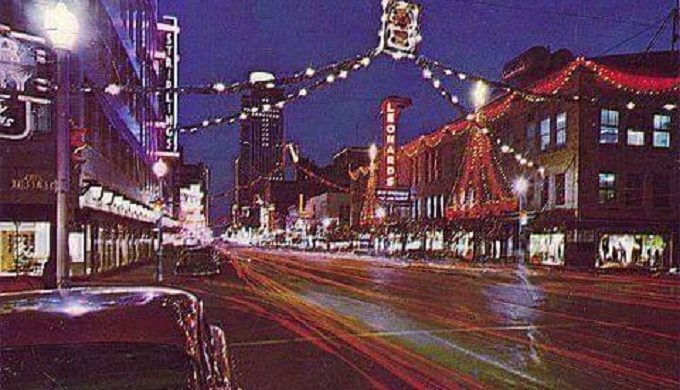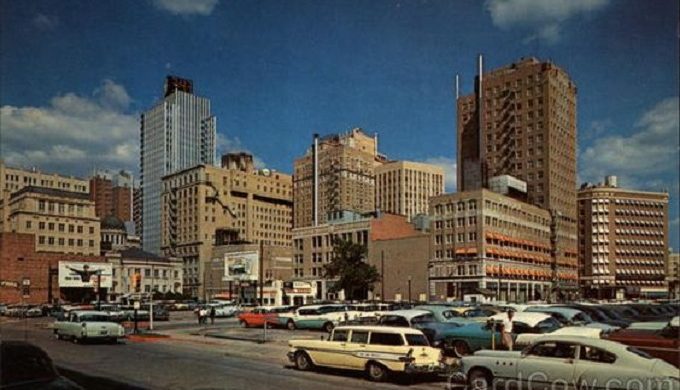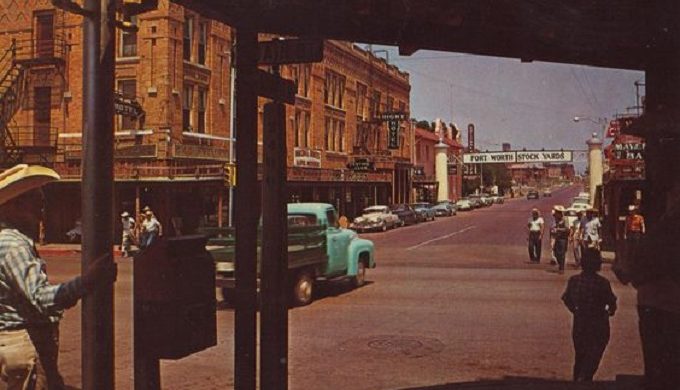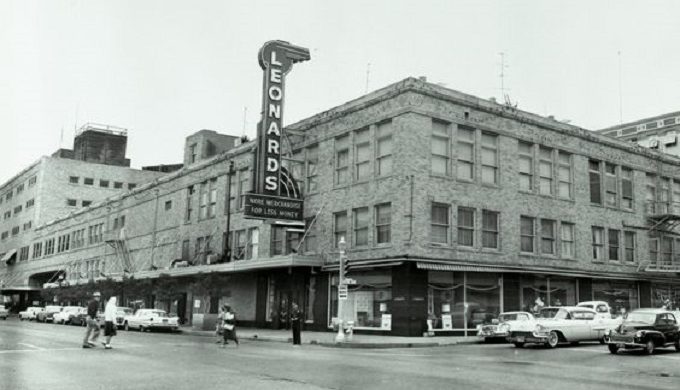Fort Worth Star-Telegram readers from Palo Pinto County, and a family from Conroe helped to solve a bit of a Christmas song mystery. Willie Nelson’s song ‘Pretty Paper’ is a liltingly beautiful tune inspired by a real-life disabled street vendor who sold “pretty paper, pretty ribbons” for pennies while crawling a downtown Fort Worth sidewalk. In 1963, Roy Orbison recorded the song, and it became a Top 15 hit on the Billboard pop chart. The following year, Willie recorded his own version, and for forty years, the identity of his protagonist remained a mystery. In 2004, columnists for the paper set out to see who in fact he might be, and what his backstory was. Their telephone interviews and research comprised the following:
Lifestyle
Willie Nelson’s ‘Pretty Paper’ Has Real-Life Inspiration
“…Wrap Your Presents to Your Darling From You…”

Photo: Facebook/Glennie Fry-Thorn
Since the 1963 recording and the many subsequent versions by various artists, the sad and sweet ballad has pulled at the heartstrings of listeners relating to the lonely description of the man selling the finishing touches to “wrap your presents to your darling from you” without ever really knowing there was a person behind those sweet, lyrical lines. But Star-Telegram readers who once shopped at Leonard’s Department Store, downtown Fort Worth, remembered the vendor, who so inspired Willie Nelson. Nelson was once a Fort Worth country radio personality before his move to Nashville and had seen the gentleman peddling his wares downtown.
Who Was Frankie Brierton?

Photo: Pinterest/Kelly Mitchell
For so long, people only recalled that the man traveled from Santo, in Palo Pinto County. Then there was a “break in the case,” so-to-speak, when a nearby rancher, Bob Neely, of Santo, called in regarding his former neighbor, named Frankie Brierton. “You could always hear him in town, dragging himself along the gravel street,” Neely explained. He crawled on all fours up and down Throckmorton or Houston Streets, outside of Leonard’s. He wore kneepads fashioned from old tire treads, large gloves and a custom-made leather vest including a built-in pencil rack and coin box on the back.
“But We Never Did Without.”

Photo: Pinterest/Robert Frank
From here, columnists reached out to family members for further detail, contacting Lillian Compte at the time (2004) of Conroe, found to be Brierton’s daughter. She wasn’t entirely sure why anyone would be inquiring about her dad, who had been passed on since ’73. “It’s a pretty song. I just never thought of it being about my father,” she said. She explained that her dad refused a wheelchair and chose to crawl. Suffering from a spinal disorder growing up, Brierton learned to crawl when his legs became weakened. He worked as a street vendor in Houston, Dallas, and Fort Worth. And aside from his location at Leonard’s, Compte explained that her dad also sold pencils at the State Fair of Texas in Dallas, on Main Street in downtown Houston, and at the Fort Worth Stock Show. She said that he earned a living without government assistance. “He sold pencils. He crawled around on his hands and knees. But we never did without.”
“I Cried Every Time I Looked Out That Store Window.”

Photo: Pinterest/Mikell Robinson
In a telephone interview, also from 2004, Star-Telegram columnists found out from former downtown store clerk Ernestine Wakefield, that she watched the man from her employment at W.C. Stripling, also on Houston Street. “I was just a West Texas girl in the big city then, and here was this poor man who had nothing,” she explained at age 84. “I cried every time I looked out that store window.” When downtown landlords protested street vendors and missionaries, Charlie Ringler (who also gave a phone interview in 2004), former store manager at Leonard’s, explained that the Leonard family allowed them to stay in front of the store, including Mr. Brierton, as well as couples named Douglas and McAdams, who sang hymns and sold pencils. He explained, “Some people wanted them moved out, but we never moved them. We couldn’t turn them away. As long as they were selling pencils or something, that was fine.”
Source:


